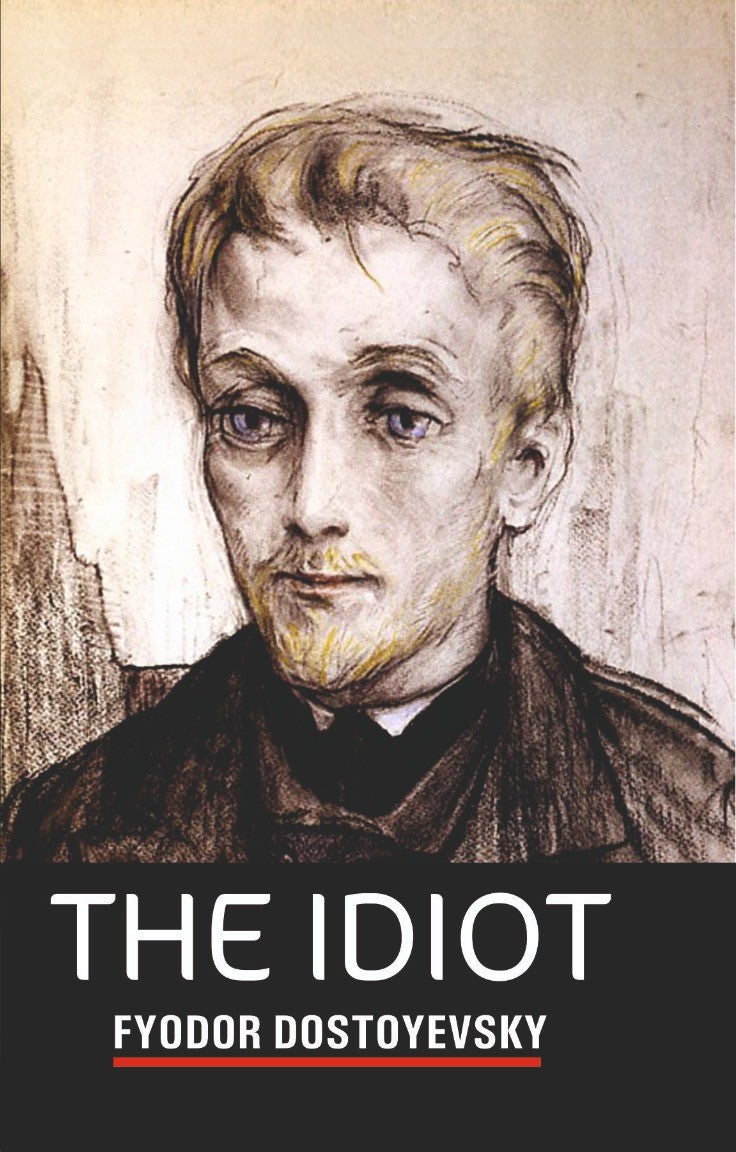
1
/
of
1
99Bookstore
THE IDIOT By FYODOR DOSTOEVSKY
THE IDIOT By FYODOR DOSTOEVSKY
Regular price
Rs. 339.00
Regular price
Rs. 799.00
Sale price
Rs. 339.00
Unit price
/
per
Shipping calculated at checkout.
Couldn't load pickup availability
In order to reach perfection, one must begin by being ignorant of a great deal.A descendant of one of Russian nobility?s oldest families, the gentle, good natured and epileptic Prince Lev Nikolayevich Myshkin returns to St. Petersburg after spending four years in a Swiss sanatorium. Taken to be an ?idiot?, Prince Myshkin?s life changes drastically after he stumbles upon a photograph of Nastasya Filippovna during a visit to his distant relative General Yepanchin. Entangled in a web of love, betrayal, and murder, the Christ-like Prince Myshkin struggles to negotiate a chaotic and corrupt Russian society.Regarded as Fyodor Dostoevsky?s most autobiographical work, The Idiot, as the author wrote in a letter in 1868, was meant ?to depict a positively good and beautiful human being?. Through the exploration of the psychological complexities and idiosyncrasies of modern Russian society, Dostoevsky presents the life of a Russian Holy Fool in a world of moral emptiness and degradation.The Idiot remains an evergreen classic.
Returning to Russia from a sanitarium in Switzerland, the Christ-like epileptic Prince Myshkin finds himself enmeshed in a tangle of love, torn between two women—the notorious kept woman Nastasya and the pure Aglaia—both involved, in turn, with the corrupt, money-hungry Ganya. In the end, Myshkin’s honesty, goodness, and integrity are shown to be unequal to the moral emptiness of those around him. In her revision of the Garnett translation, Anna Brailovsky has corrected inaccuracies wrought by Garnett’s drastic anglicization of the novel, restoring as much as possible the syntactical structure of the original story.
Returning to Russia from a sanitarium in Switzerland, the Christ-like epileptic Prince Myshkin finds himself enmeshed in a tangle of love, torn between two women—the notorious kept woman Nastasya and the pure Aglaia—both involved, in turn, with the corrupt, money-hungry Ganya. In the end, Myshkin’s honesty, goodness, and integrity are shown to be unequal to the moral emptiness of those around him. In her revision of the Garnett translation, Anna Brailovsky has corrected inaccuracies wrought by Garnett’s drastic anglicization of the novel, restoring as much as possible the syntactical structure of the original story.
Share
- Quality Checked
- Secure Payments
- COD Available


90K+
Happy Customer
150K+
Books Sold






